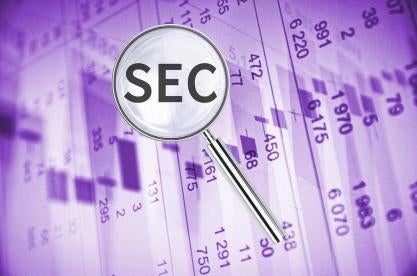On April 14, 2017, a federal judge granted a bid by the SEC to force former head fund manager Francisco Illarramendi to pay nearly $27 million for his role in a Ponzi scheme. According to the court’s order, Illarramendi was the mastermind behind an elaborate five-year scheme to cover up a $5 million investment loss. Rather than disclosing this loss to investors, Illarramendi tried to “raise as much money as possible to be able to make it so that the gains from . . . the additional money would eventually cover the loss.” Illarramendi’s sheme was unsuccessfully and only served to increase the amount of mismanagement between assets and liabilities to approximately $30 million.
According to a speech by former SEC Enforcement Director Andrew Ceresney, Ponzi schemes and offering fraud are the types of cases where whistleblower assistance is especially critical. The Director noted that whistleblowers have helped the SEC identify Ponzi schemes and false and misleading statements in offering memoranda and marketing materials, which enables the agency to act quickly and prevent investment frauds from luring more investors.
SEC Whistleblower Program
Under the SEC Whistleblower Program, whistleblowers may be eligible for monetary awards when they voluntarily provide the SEC with original information about violations of federal securities laws, including Ponzi schemes and offering fraud. If a whistleblower’s tip leads to a successful enforcement action resulting in monetary sanctions exceeding $1,000,000, the whistleblower is eligible to receive between 10% and 30% of the monetary sanctions collected.
The SEC Whistleblower Program also protects the confidentiality of whistleblowers and does not disclose information that might directly or indirectly reveal a whistleblower’s identity. In fact, whistleblowers can even submit a tip anonymously if represented by counsel.
Since the law went into effect, the SEC Whistleblower Office has awarded more than $150 million to 42 whistleblowers. The largest award to date is more than $30 million. In 2016, the office issued more than $57 million in awards to whistleblowers.
Ponzi Schemes
The SEC defines a Ponzi scheme as “an investment fraud that involves the payment of purported returns to existing investors from funds contributed by new investors.” The fraudsters are able to keep the scheme running only by attracting new money to make promised payments to earlier-stage investors, thereby creating the false appearance that investors are profiting from a legitimate business. The schemes tend to collapse when the fraudsters are unable to recruit new investors or when a large number of investors ask to cash out.
Warning Signs of a Ponzi Scheme
The SEC compiled a list of red flags that are common to most Ponzi schemes. These warning signs include:
-
high investment returns with little or no risk;
-
overly consistent returns;
-
unregistered investments;
-
unlicensed sellers;
-
secretive and/or complex strategies;
-
issues with paperwork; and
-
difficulty receiving payments.
SEC Enforcement Actions Combatting Ponzi Schemes
In another recent enforcement action, the SEC charged an investment group and three top executives with hiding the rapidly deteriorating financial condition of the enterprise while raising more than $350 million from investors. In the scheme, the executives defrauded more than 1,500 investors into believing that they were investing in healthcare, education, and transportation, when their money was really being used to keep the firm from going bankrupt. It was considered a Ponzi scheme because some of the money from new investors was used to pay earlier investors.
The operation showed some of the typical warning signs of a Ponzi scheme, such as promising high rates of return that ranged from 8.5% to 10%. In late 2015, the scheme unraveled after the firm could no longer meet scheduled redemptions.
In a separate enforcement action, the SEC charged a real estate company with engaging in a $2.7 million Ponzi scheme that targeted elderly investors. Like many Ponzi schemes, the company “guaranteed income” to investors. This income was purportedly derived from the profits of a Pennsylvania real estate venture that bought, redeveloped, and sold properties. In reality, the company did not operate a real estate venture, and it used the investments for personal expenses, such as purchasing tickets for sporting events, paying college tuition, and maintaining personal credit cards.




 i
i


